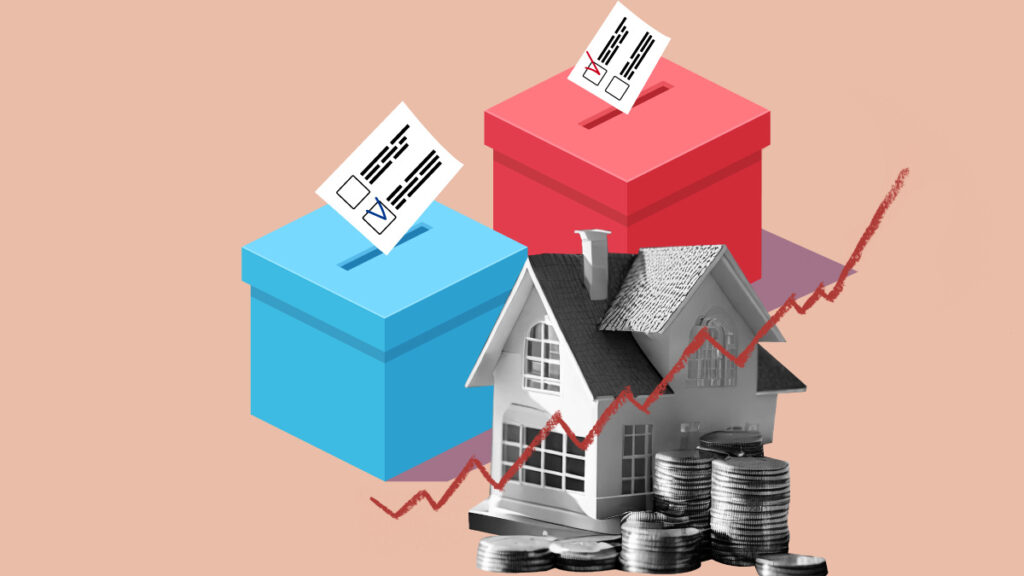[ad_1]
A lot has been said during this election cycle about housing affordability as a potential difference-maker, with both major party presidential candidates giving more attention to housing issues than in other recent campaigns.
But now that the results have largely been tabulated, voters appeared to back more basic economic concerns rather than issues related to housing. Comparatively speaking, housing was a more prominent issue at the national level among Democratic candidates than it was among Republicans.
With the return of Donald Trump to the White House in January, the former president and now president-elect appeared to effectively tap into general discontent among the broader electorate over two key issues: immigration and the economy.
Recent Redfin survey data showed that 29% of self-identified Trump voters indicated that housing affordability influenced their pick on Tuesday. But based on exit polls conducted by NBC News and consortium of 10 news organizations across 10 key states, the condition of the economy was a clear motivator for those who identified as Trump voters.
A combined 67% of poll respondents who were asked about the condition of the economy said it was either “not so good” or “poor,” with clear majorities coming down on Trump’s side. Nearly 70% of Republicans characterized the condition of the economy this way, and Trump has for years railed against high levels of inflation under the Biden administration as a key issue in connecting to voters.
Forty-five percent of voters polled said that the financial condition of their family was worse today than it was at this point in 2020. Among this group, 80% identified themselves as Trump voters.
Exit polls conducted by the The Washington Post also showed that Trump voters were clearly motivated by the state of the economy, with 79% of his supporters saying it was their top issue headed into the election. Among all voters, 31% said the economy was their primary issue, with only the “state of democracy” outpacing the economy as a key motivator at 35% of the total electorate.
In what could be a telling sign of its overall lack of prominence as a subset of economic issues, housing was not broken out in the exit polls from these mainstream media outlets.
But supply and affordability will need to be addressed by the Trump administration in the next four years, and some housing organizations — including the Community Home Lenders of America (CHLA) — have expressed readiness to work with elected officials to address these challenges.
Over the next couple of months, Trump will need to make key decisions about the posture of housing policy in his White House. This will include selecting leaders for the U.S. Department of Housing and Urban Development (HUD), the Federal Housing Administration (FHA), the Federal Housing Finance Agency (FHFA), Ginnie Mae and the Consumer Financial Protection Bureau (CFPB).
As noted in prior HousingWire reporting and a recent look at potential policy stances by Politico, Trump has spoken about easing regulations on homebuilders in an effort to boost supply. The 2024 Republican platform also mentioned the selling of federal lands to allow for more homes to be constructed.
The Biden administration previously proposed a plan that included selling federal lands, but it remains unclear how states with large swaths of federal land — like Utah — could be impacted by such a move. The plan may also merit more or less consideration under the new White House.
Related
[ad_2]
Source link

